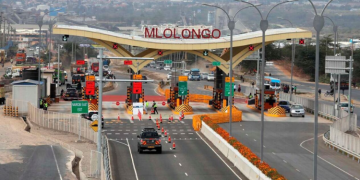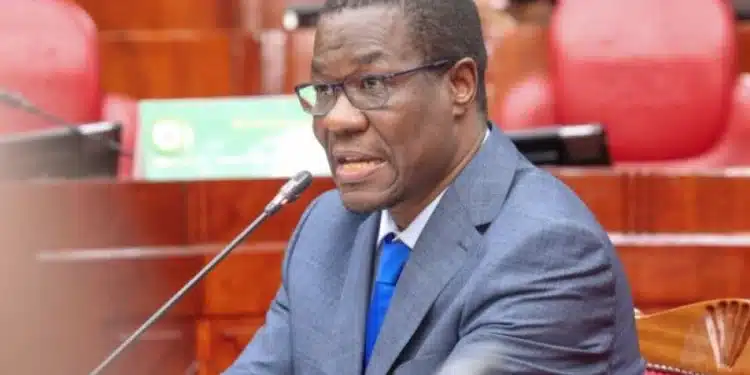The Ministry of Energy & Petroleum has responded to reports regarding Kenya’s Government-to-Government (G2G) deal for importing refined petroleum products.
In its statement released on August 28, 2024, the Ministry of Energy issued a comprehensive response aiming to clarify the details and address allegations of financial discrepancies.
The reports, which were published in the local dailies, suggested that motorists had overpaid Ksh16 billion in fuel costs and that the Treasury had expended Ksh47 billion on fuel subsidies.
In the response, the Ministry detailed the G2G arrangement and its intended benefits, emphasizing that it was meant to stabilize Kenya’s economy by addressing USD liquidity challenges & securing favorable credit terms.
“The Petroleum (Importation) Regulations, 2023 (Legal Notice No. 3 of 2023) provides for the importation of Petroleum Products (Super Petrol/Premium Motor Spirit, Diesel/Automotive Gasoil and Jet A-1) under a government-to-government (G-to-G) arrangement or through the Open Tendering System (OTS). The Ministry of Energy and Petroleum (the Ministry) centrally coordinates the importation process as provided for under Legal Notice No. 3 of 2023,” read part of the notice.
According to the Ministry, the G2G deal, which began on April 1, 2023, was established to address significant challenges in USD liquidity and stabilize Kenya’s economy.

It argued that the arrangement was designed to mitigate the impact of a high Federal Reserve rate, which had led to capital flight and a severe depreciation of the Kenya Shilling.
Government defends G2G Deal
In addition, the ministry said that the G2G deal was formalized through Master Framework Agreements (MFAs) signed on March 10, 2023, with extended credit terms of 180 days.
This, the Ministry adds, was intended to accumulate additional foreign reserves and support the stabilization of the Kenyan Shilling, which had faced substantial depreciation, according to the government.
Also Read: EPRA Announces Fuel Prices for August & September Cycle
The Ministry highlighted that the G2G deal included favorable financing terms, with a longer credit period compared to the Open Tendering System (OTS), which typically features a 30-day credit period.
Despite the extended credit terms, the Ministry asserts that the Freight and Premium (F&P) costs under the G2G arrangement are among the most competitive in the region.
The government’s statement also addressed the economic impact of the deal. At the time of the arrangement’s implementation, the Kenyan Shilling was forecasted to depreciate to the lows of Ksh190 to 200 per USD if no intervention was made, according to the Ministry.
Further, the Energy Ministry said the G2G arrangement has been credited for having stabilized the Shilling, noting that it improved from a high of 160 to the 120s. The Ministry contends that the arrangement has played a crucial role in mitigating potential economic collapse by ensuring a steady supply of essential imports.
“The G-to-G program has provided immense benefits to the country’s economy in particular with regard to the USD liquidity and appreciation of the Kenya Shilling against the USD.
It is worth noting that at the time the G-to-G arrangement was implemented, the country was grappling with serious USD liquidity issues which had in turn negatively affected the value of the Kenya Shilling against the USD,” the Ministry said.
Fuel Subsidies
Furthermore, the Ministry of Energy clarified that the administrative fees for Oil Marketing Companies (OMCs) have remained consistent since the transition from the OTS to the G2G arrangement.
Also Read: CBK Reveals Latest Trend in Global Oil Prices Ahead of EPRA Review
Reports had indicated that an ongoing cost-of-service study by the Energy and Petroleum Regulatory Authority (EPRA) will provide further insights into these fees once completed.
Meanwhile, the government has addressed fuel subsidies where it highlighted that Ksh144 billion was spent on subsidies prior to the current administration.
“Since the Kenya Kwanza Government took office in September 2022, it has removed these subsidies and instead established a petroleum pump price stabilization framework,” the statement adds.
The government has revealed that so far, it has spent Ksh44 billion from the Petroleum Development Levy Fund to stabilize fuel prices, emphasizing that this expenditure is fully funded by the levy and not from general Treasury funds.
Follow our WhatsApp Channel for real-time news updates!
https://whatsapp.com/channel/0029VaB3k54HltYFiQ1f2i2C










































































